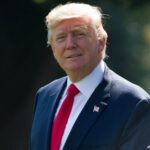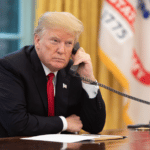


A former CIA director, once the face of national intelligence, was unraveling under pressure at a public event. Last week on Thursday night, John Brennan, ex-CIA chief, faced a fiery confrontation at the Hayden Center at George Mason University, just outside Washington, D.C. The clash, sparked by a whistleblower’s pointed questions, exposed lingering tensions over Brennan’s past actions and the controversial "Dirty 51" letter tied to Hunter Biden’s laptop.
The encounter unfolded during an intelligence panel discussion, where Brennan was challenged on his role in past intelligence controversies and the politicization of key assessments.
It all started during the audience question segment when Thomas Speciale, a whistleblower with 30 years as an Army intelligence officer, stepped up to the mic. Speciale, who served as an intelligence strategist at the Office of the Director of National Intelligence during the 2017 Russiagate assessment, didn’t hold back. He pressed Brennan on allegedly pushing the discredited Steele dossier into that assessment despite objections from CIA Moscow specialists.
Declassified emails and documents, released in July by current CIA Director John Ratcliffe, suggest that Brennan, along with former FBI Director James Comey and ex-Director of National Intelligence James Clapper, may have manipulated that 2017 assessment. For conservatives wary of deep-state overreach, this reeks of a deliberate attempt to frame political opponents as foreign assets. It’s no wonder Speciale’s questions struck a nerve.
Brennan’s response? Pure deflection laced with frustration. “I don’t know who put you up to this, or what role you played, or who you are, but it’s a bunch of bull–t you just passed on,” he snapped at Speciale, as reported from the event.
Speciale, unfazed, calmly countered with, “The emails are clear, sir,” standing his ground against Brennan’s outburst. For those skeptical of entrenched bureaucrats, this moment felt like a rare glimpse of accountability knocking at the door. After all, Brennan is currently under a criminal referral to the Department of Justice for allegedly misleading Congress—a detail that adds weight to Speciale’s challenge.
The drama didn’t end at the panel. At a drinks event afterward, Speciale continued his line of questioning, this time zeroing in on Brennan’s involvement in the infamous "Dirty 51" letter. This letter, signed by Brennan, former NSA chief Michael Hayden, and others, falsely painted Hunter Biden’s laptop as Russian disinformation—a claim orchestrated by the Biden campaign to deflect from influence-peddling allegations.
Organized by former acting CIA Director Mike Morell, the letter was leaked to Politico with a headline screaming that the laptop story was Russian disinformation, as confirmed by event details. It was a calculated move, designed as a debate talking point for Joe Biden, and it worked—social media giants like Twitter and Facebook censored the New York Post’s explosive report until well after Biden took office. To many on the right, this smacks of election interference dressed up as national security.
Brennan’s defense during the drinks confrontation was predictably weak, claiming, “You misrepresented that. We never said it was disinformation. We said it was Russian influence operations, which is what they do,” as captured from the exchange. Nice try, but splitting hairs over wording doesn’t erase the letter’s impact on burying a story that deserved scrutiny.
On stage with Brennan was Michael Hayden, another "Dirty 51" signatory and former NSA chief under George W. Bush, whose own record includes heading the illegal warrantless wiretapping program that spied on countless Americans. Hayden, a vocal critic of Donald Trump, once co-signed a letter branding Trump as “unqualified” and a “clear and present danger” to national security. For conservatives, this history only deepens suspicions of bias within the intelligence community.
Together, Brennan and Hayden didn’t shy away from taking jabs at the current Director of National Intelligence, Tulsi Gabbard, during the panel. They questioned her lack of intelligence experience, with Hayden bluntly stating, “The DNI is gone,” as reported from the event. It’s a cheap shot that ignores the bigger issue: shouldn’t we be more concerned about past leaders politicizing intelligence than a newcomer’s resume?
For many Americans tired of establishment games, this event was a microcosm of why trust in institutions like the CIA has eroded. Brennan’s visible agitation and Hayden’s track record don’t exactly scream “trustworthy stewards of truth.” Instead, they fuel the argument that some intelligence officials have long prioritized political agendas over national interest.
The "Dirty 51" letter remains a sore spot for those who value transparency. Its role in suppressing the Hunter Biden laptop story—evidence of potential influence peddling—raises serious questions about how far some will go to protect favored narratives. Conservatives see this as a textbook case of weaponizing intelligence for partisan gain, and they’re not wrong to demand answers.
Speciale’s courage in confronting Brennan, twice no less, is a reminder that not everyone in the intelligence world buys into the status quo. His persistence, even as Brennan dismissed his claims as nonsense, highlights a growing pushback against unchecked power in Washington. It’s a small but significant stand for accountability.
Ultimately, this clash at the Hayden Center isn’t just about one man’s outburst—it’s about the deeper rot many believe festers in our intelligence apparatus. When former leaders like Brennan and Hayden seem more upset about being questioned than about their own questionable actions, it’s hard not to wonder who they’re really serving. For those on the right, events like these only strengthen the case for draining the swamp, one tough question at a time.



